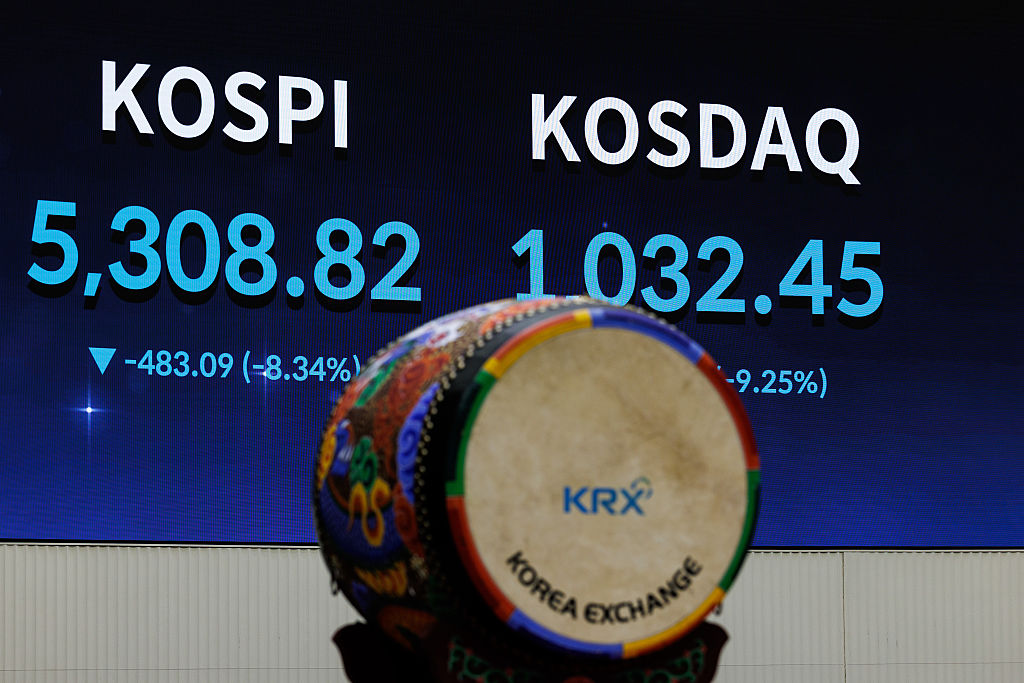The only kind of performance fee I wouldn't mind
Performance fees are a scam – just another way to transfer money from investors to fund managers. They shouldn't exist. But if they must, here is what they should look like.

Get the latest financial news, insights and expert analysis from our award-winning MoneyWeek team, to help you understand what really matters when it comes to your finances.
You are now subscribed
Your newsletter sign-up was successful
Want to add more newsletters?
I wrote earlier about the elements that make a fund manager successful. It is, I think, a mixture of luck and skill, with the former being the key bit. You can be the most clever manager in the world, but if you don't have the market's momentum moving behind your strategy you don't have a hope of making money. I had this in mind when I went on Moneybox on Saturday morning to talk about absolute return funds.
Paul Lewis pointed out that of the 65 funds billed as 'absolute return' in the UK, a mere 25 made positive returns last year. Worse, only eight managed to make enough to beat inflation. Absolute return funds are generally nothing of the sort. If one were to rename them in an accurate sort of way, one might go for something more like 'high-fee indifferent return' funds (snappier suggestions below please).
Much the same goes for the hedge fund industry. Jonathan Davis covers the inadequacies of the sector nicely, but the key point is that even if you make various favourable assumptions, between 1998 and 2010, "hedge fund managers earned an estimated $379bn in fees, out of total investment gains (before fees) of $449bn. In other words, they took 84% of the investment profits their funds made, leaving just 16% for the investors."
Try 6 free issues of MoneyWeek today
Get unparalleled financial insight, analysis and expert opinion you can profit from.

Sign up to Money Morning
Don't miss the latest investment and personal finances news, market analysis, plus money-saving tips with our free twice-daily newsletter
Don't miss the latest investment and personal finances news, market analysis, plus money-saving tips with our free twice-daily newsletter
Add in survivor bias, fund of fund fees and so on and it is "probable" that hedge fund managers have kept all the money they have made out of other people's money and "investors have in aggregate received nothing".
This dismal statistic brings us to the main culprit here the performance fee.This isthe thing that has worked to transfer the vast majority of those returns from the investor's pocket to the manager's pocket over the last decade.
I've written about performance fees many times before, but let me list again the many reasons for loathing them.
First is the fact that all funds charge management fees. And it seems to me that in paying this, investors are paying a manager to manage their money to the best of his ability. If he does this, why should they then pay him more? In many ways, outperformance should be its own reward. If a fund does well, more money will flow to it and the manager will then get more money in management fees: success is rewarded automatically.
So that's the basic problem. All the rest are with construction. If a performance fee is to be paid how should it be calculated? Has a fund outperformed if it does better than other funds? If it does better than an index? If it returns you more than cash in the bank? If it makes you a return over and above inflation?
Most funds go for one of the first two, with a benchmark fund being favoured. I don't really approve of this, because it seems to me that fund managers should do better than the index anyway. Not to do so is a massive failure. To do so is simply to begin to fulfil your mandate, not in any way to beat it. Another reason is that most of the indices they use don't include dividends. The much-used MSCI indices, by their own description "measure the price performance of markets without including dividends."
But dividends matter. Obviously, an index that includes them always does better than one that does not, so to use the latter as a benchmark is deeply suspect: it suggests outperformance when there is none.
Next up, 'high-water marks'. Imagine a fund that rises 20% in a year (say from a net asset value of 100 to one of 120), triggering a performance fee. It then falls 30% the next year (to 84) and rises 20% in year three (to 100.8). By the end of year three, the net return to investors after fees will be negative, yet the managers will have taken two performance fees!
Some funds operate a high-water mark so in this case, no further performance fee would be payable until the fund hits 120 again. But I am sorry to say that most still don't.
And even when they do operate a high-water mark, the retail investor could still feel pretty hard done by. He pays out a whopping performance fee in year one; he then loses all the performance (plus some more) in year two, but the fund manager doesn't have to give anything back. Win-win for the fund manager; win-lose for the investor high-water mark or not.
I can't think of a performance fee that I would love, but one I wouldn't mind would look like this:
It would only pay out if the fund beat: 1) the return on cash; 2) inflation plus 2%; and 3) the relevant index including dividends by 3%.
It would be capped at a relatively low level.
It would only be charged on funds with a management fee below 0.3% (and preferably zero).
It would have an inflation-linked high-water mark so that no fee could be paid out until the previous asset-value peak adjusted for inflation had been reached.
And finally, it would have rebate system. All money taken for performance fees would be held in an escrow account for five years and returned to the main fund in line with underperformance so when investors lose, managers lose too.
Fund managers getting fat on performance fees will say this won't work. I say it only won't work because they can't produce the regular good absolute returns they'd need to get a payout under my terms. And if they can't, why should we pay them as if they can?
Get the latest financial news, insights and expert analysis from our award-winning MoneyWeek team, to help you understand what really matters when it comes to your finances.

-
 Stock market circuit breaker: Why did Korean shares stop trading?
Stock market circuit breaker: Why did Korean shares stop trading?The fallout from the conflict in the Middle East hit the Korean stock market on 4 March, with shares forced to temporarily stop trading. What is a stock market circuit breaker, and why did the KOSPI trigger one?
-
 The UK regions with the highest proportion of homes above the inheritance tax threshold
The UK regions with the highest proportion of homes above the inheritance tax thresholdHigh house prices are pushing more families into the inheritance tax trap across the country
-
 House prices to crash? Your house may still be making you money, but not for much longer
House prices to crash? Your house may still be making you money, but not for much longerOpinion If you’re relying on your property to fund your pension, you may have to think again. But, says Merryn Somerset Webb, if house prices start to fall there may be a silver lining.
-
 Prepare your portfolio for recession
Prepare your portfolio for recessionOpinion A recession is looking increasingly likely. Add in a bear market and soaring inflation, and things are going to get very complicated for investors, says Merryn Somerset Webb.
-
 Investing for income? Here are six investment trusts to buy now
Investing for income? Here are six investment trusts to buy nowOpinion For many savers and investors, income is getting hard to find. But it's not impossible to find, says Merryn Somerset Webb. Here, she picks six investment trusts that are currently yielding more than 4%.
-
 Stories are great – but investors should stick to reality
Stories are great – but investors should stick to realityOpinion Everybody loves a story – and investors are no exception. But it’s easy to get carried away, says Merryn Somerset Webb, and forget the underlying truth of the market.
-
 Everything is collapsing at once – here’s what to do about it
Everything is collapsing at once – here’s what to do about itOpinion Equity and bond markets are crashing, while inflation destroys the value of cash. Merryn Somerset Webb looks at where investors can turn to protect their wealth.
-
 ESG investing could end up being a classic mistake
ESG investing could end up being a classic mistakeOpinion ESG investing has been embraced with enormous speed and zeal. But think long and hard before buying in, says Merryn Somerset Webb.
-
 UK house prices will fall – but not for a few years
UK house prices will fall – but not for a few yearsOpinion UK house prices look out of reach for many. But the truth is that British property is surprisingly affordable, says Merryn Somerset Webb. Prices will fall at some point – but not yet.
-
 This isn’t the stagflationary 1970s – but neither is it the low-rate world of the 2010s
This isn’t the stagflationary 1970s – but neither is it the low-rate world of the 2010sOpinion With soaring energy prices and high inflation, it might seem like we’re on a fast track back to the 1970s. We’re not, says Merryn Somerset Webb. But we’re not going back to the 2010s either.